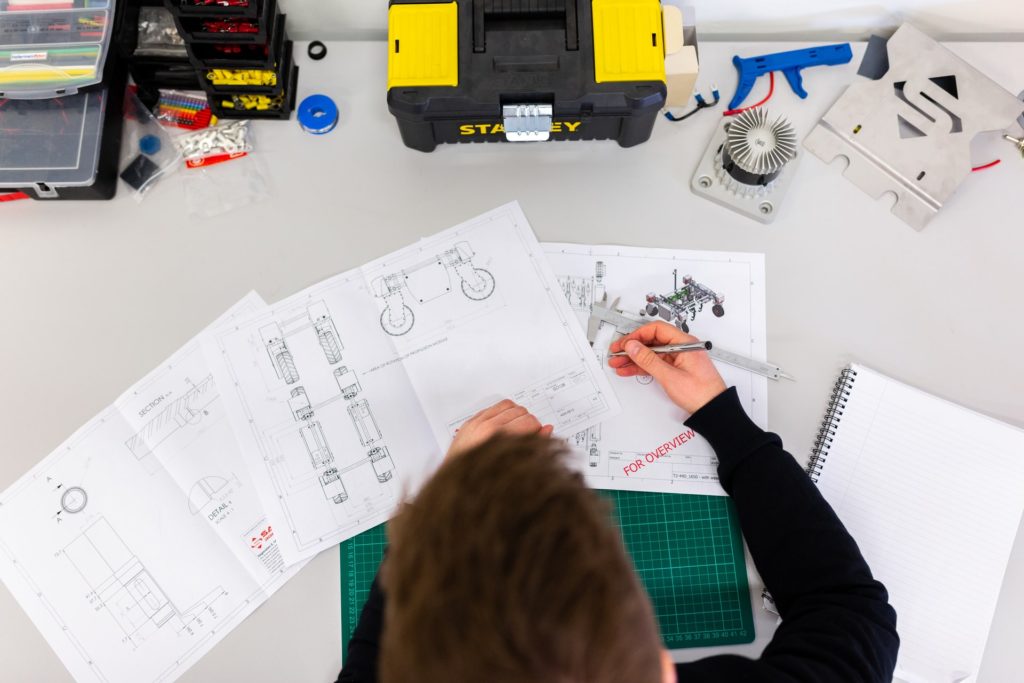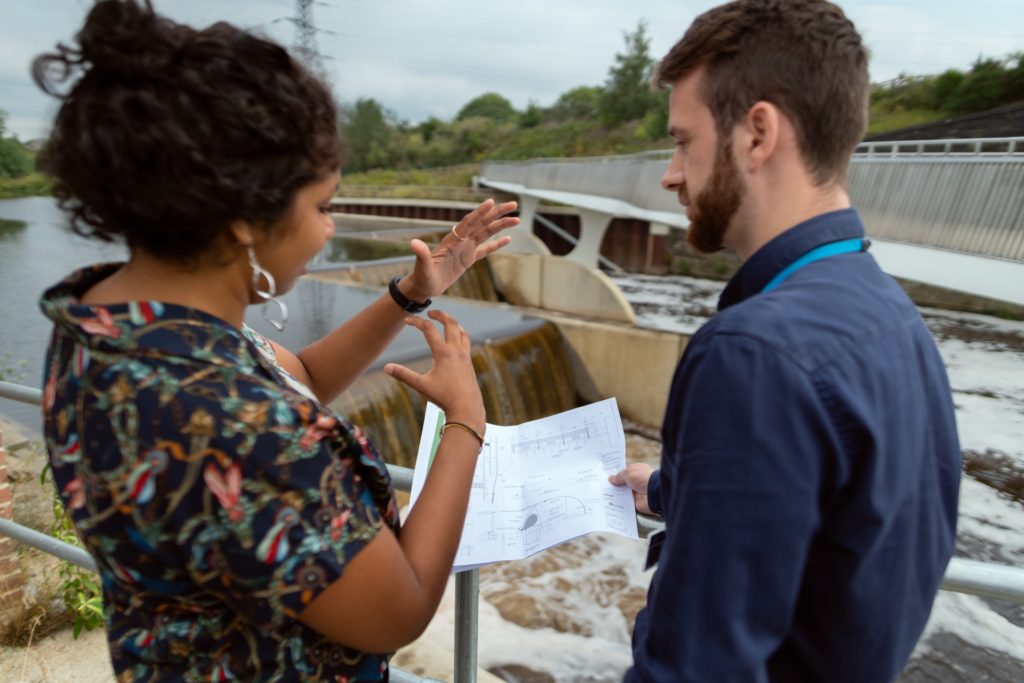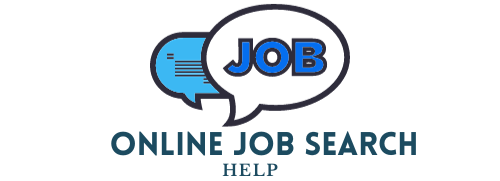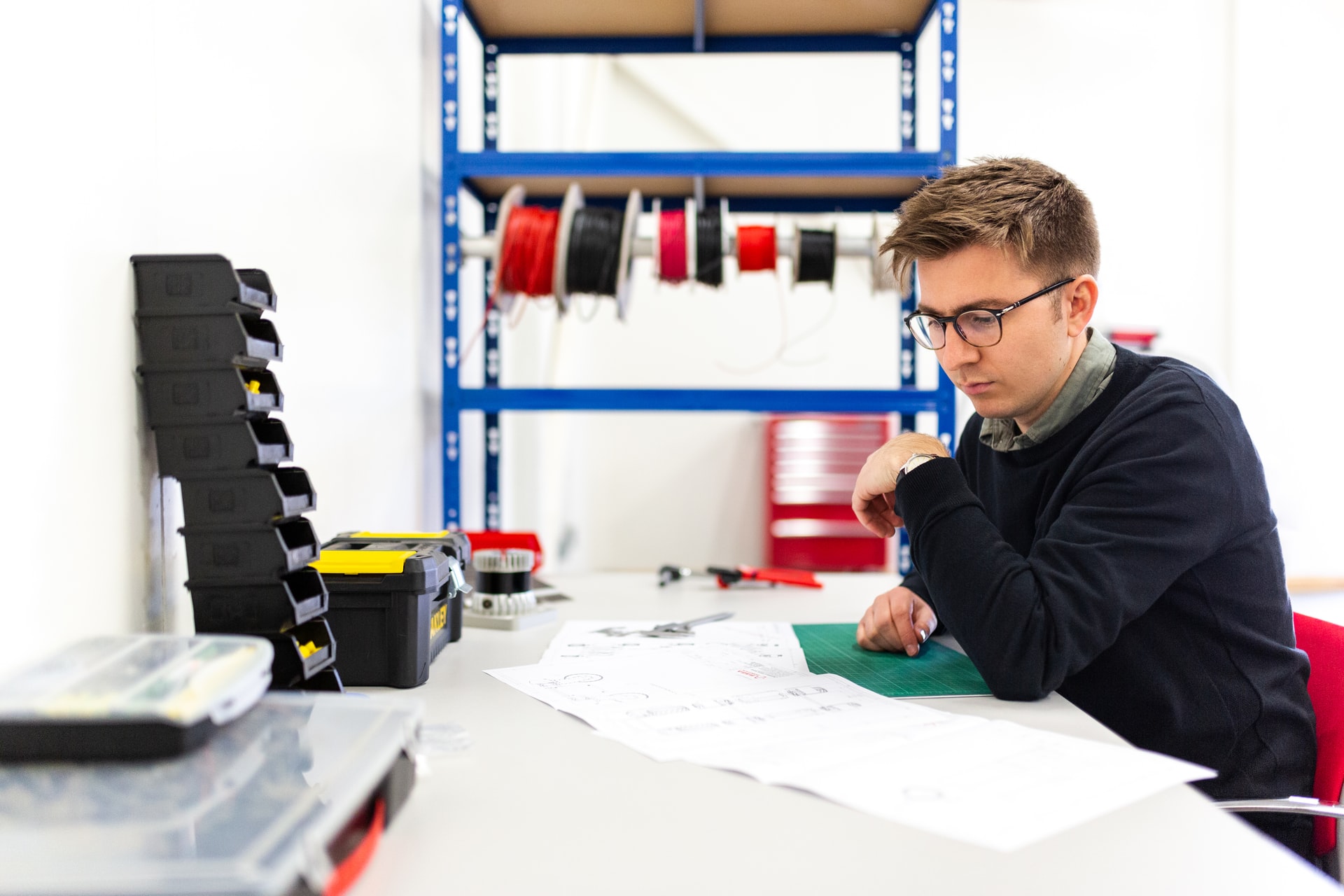The Most Common Control Engineer Interview Questions & Answers
Everything revolves around a never-ending cycle of expansion. A company’s goal is to increase its production capacity while reducing expenses per unit and to achieve the best possible efficiency in all activities inside a facility. As the economy continues to increase, so does the population.
Is it a hobby or a mania? Moreover, should we be striving for ever-increasing expansion, ignoring the environmental and other consequences of our production activities?
Here, I don’t feel like delving into philosophical discussions. As a control engineer, you can provide a variety of ideas, including ones that help your organization lower its environmental footprint.
Instead, let’s have a look at some potential control engineer interview questions you might be asked while applying for this exciting position.

Table of Contents
Control Engineer Interview Questions & Answers
Tell Us A Little Bit About Your Previous Work Experience.
Be sure to keep the conversation on the topic. Any new or better procedures you created or implemented, as well as any efficiency gains you achieved. When it comes to large-scale production, even a minuscule improvement like this is significant.
The ideal situation is to talk about real changes and procedures that are at least in some way relevant to their field of manufacturing or manufacturing. In your response, be sure to include some numbers, but avoid using too many technical terms or phrases from the business world.
Hr employees and managers, rather than technicians, are more likely to lead your interview. At the very least, they’ll be on the panel of judges. If they didn’t comprehend what you were saying, they wouldn’t hire you.
If You Get Hired For (Or Promoted To) This Role, What Will Be Your First Action?
There are two possible outcomes in this situation. First, if you’re applying for a job within the organization or know a lot about how things are made there and want to advance within it.
If this is the case, you’ll want to point out which aspects of the production process need improvement. You can even go so far as to identify specific processes and areas for improvement. In some way, or at the very least, implying that there might be some.
Alternatively, if you have some little background on the business, you might recommend the following ideas:
- Meeting one-on-one with senior management and production’s lead managers to better grasp their aspirations and concerns.
- Looking for areas of improvement in an internal audit (or analyzing the outcomes of the most recent audit). Personal examination of any existing procedure that falls under your responsibility can be combined with this.
Are You Familiar With Quality And Safety Regulations In This Industry?
Once again, you may find yourself in a bind. The first is when you’ve worked in the field before and have a basic understanding of the safety rules and laws that govern it. In this scenario, you can simply cite examples from your own experience and explain how you were able to meet the criteria or point out a method that didn’t.
When you apply for your first engineering job in a certain industry, things get tougher. Depending on the situation, you can either do some study ahead of time to learn about the relevant quality and safety standards, or you can be honest and explain that you don’t know anything about it but recognize that it’s a part of the job. If they hire you, you’ll spend your time studying and learning about everything.
As previously said, the interviewers are mainly interested in your overall demeanor. A chance is usually given to those who show an interest and appreciate the necessity of preserving quality and safety in the workplace.

Tell Us About A Time When You Couldn’t Get Your Point Across To A Coworker.
You’ll be able to spend hours at the drawing board, working with CAD, or pen and paper, whichever method you like to work with.
There is no budget in place, therefore all of your proposals must be approved by upper-level management before they can be implemented. Before they can even begin to consider whether or not to implement your proposals, they need to fully grasp who you are and what you stand for.
Potential employers need to know that you aren’t completely ensconced in an engineering bubble. Experiment with different ways of expressing yourself, such as using jargon common to the business world or the vernacular of everyday people.
You can use an example from the past when you used demonstrations, real-world examples, PowerPoint presentations with computerized simulation, or any other technique to help your audience comprehend your message. More essential than the specifics of the story you’re telling is the attitude you convey.
In Five Years, Where Do You Want To Be?
These are the kinds of questions that should never be asked in engineering interviews, in my opinion. In this industry, there is a lot of turnovers. It’s also difficult to anticipate which companies will survive and which will go out of business given the current economic climate (very unstable), as well as the epidemic and everything (or at least will have to let most of their engineers go).
Here are some things you could do:
- You’re trying to keep your mind on the here and now because you’re not sure. As long as you’re able to express your creative ideas in your work and your employer is content, you won’t be looking for a new career. It’s more important for you to secure this employment with their company for the time being; the rest will unfold in a year or five.
- Pick an area of engineering that interests you and focus on it. Electrical or mechanical engineering can be a sub-discipline, or you can even talk about a single product or product category. As long as it somehow relates to what they do for a living, they’ll be fine with this answer.

Final Thoughts
Due to a wide range of variables, it is impossible to forecast exactly what will happen in your interview for a career as a Controls Engineer.
Who conducts the interview with you is the most important consideration. Technical inquiries are out of the question for an HR representative, because they don’t have the ability to evaluate how accurate your responses are. A senior engineer, on the other hand, may ask a lot of difficult technical questions if they are conducting the interview.
The job market and the company’s reputation also play a role in determining whether or not a person will accept a job offer. Engineers are in great demand. HR managers of a lesser-known company hope you do well in an interview so they may make you an offer of employment. In some cases, you may be the sole candidate who will be interviewed.
On the other hand, if you’re looking for a job as a Controls Engineer at one of the major players, you’ll likely encounter stiff competition and a slew of difficult scenario-based questions, making it much more difficult to stand out.
Prepare a short answer to each of the questions in this article and think about your situation realistically before applying to a new job or internship. At this point, it’s unlikely that there is anything else you can do to increase your success chances.





